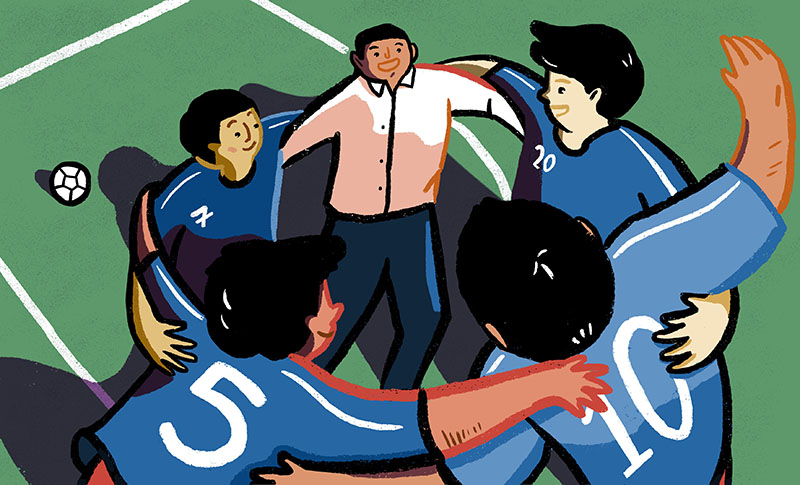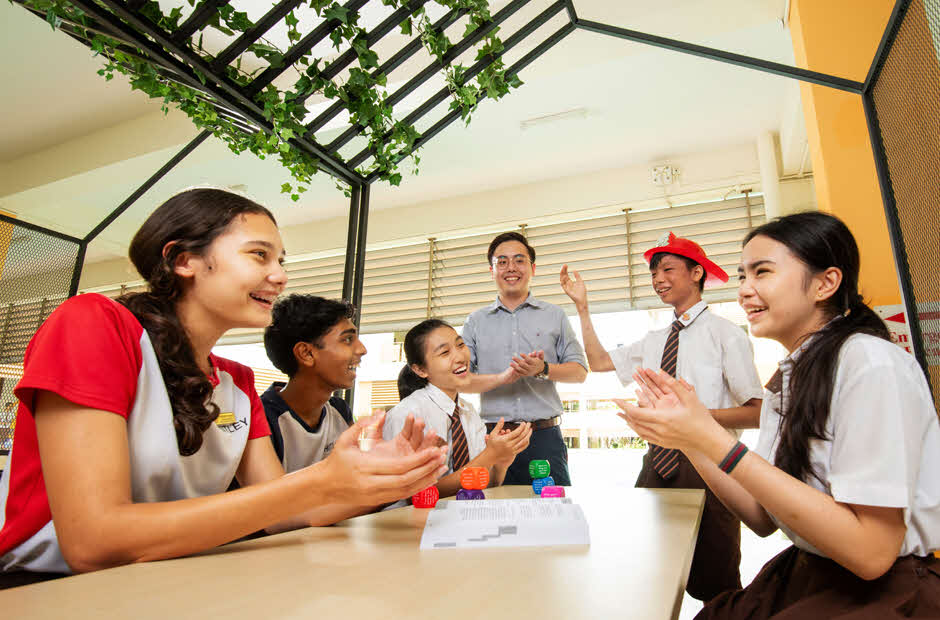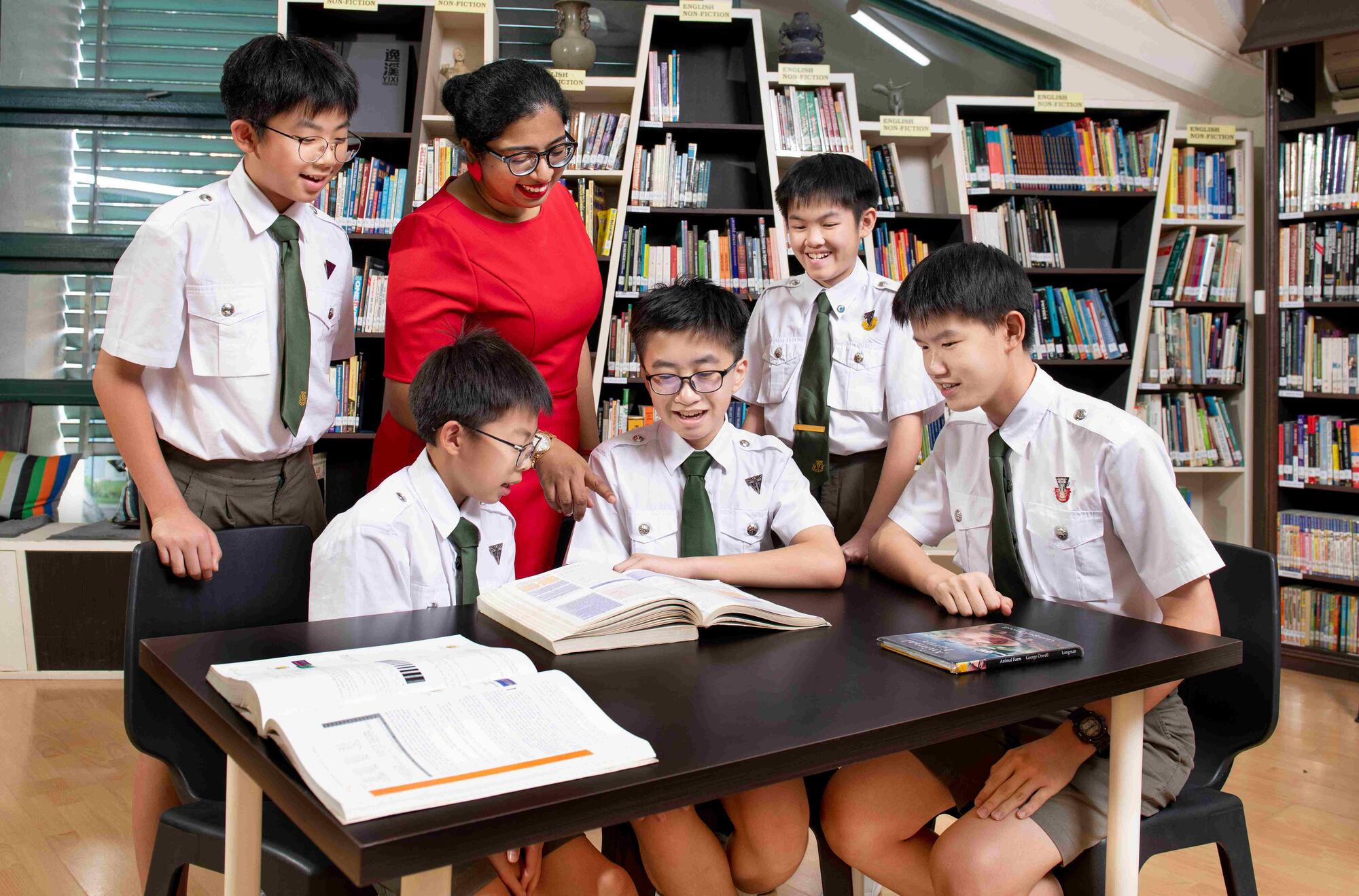They were a group of only 15 boys, but they accounted for most of the serious school offences in Siglap Secondary School in 2013.
Disruptive behaviour in class, absenteeism, fighting, defiance of teachers, smoking—they’d done it all, and faced the consequences. And they were only in Secondary One.
So their discipline masters tried something different: futsal.
“A lot of their issues stemmed from problems at home and a lack of self-motivation. So we created a purpose for them to come to school,” says Mohamed Sayadi.
He and his deputy Khaliq started a programme called Strivers, to reflect the aspiration for its participants to become better people. The plan was simple — weekly after-school futsal sessions between the 15 boys and two discipline masters, nothing more.
It was not an easy sell. When the boys were told they’d been put on the programme, they exclaimed: “Oh, it’s because we’re the naughty ones.”
But at their first session, they got a surprise: a red-coloured football jersey for each of them, with the word “STRIVERS” emblazoned on the front. It quickly became their calling card, and they wore it with pride.
After each week’s match, they’d sit in a circle to reflect. “I like how you supported your friend to score the goal”, Khaliq would tell one student. “Your friend missed the goal, but there’s no need to shout at him like that”, Sayadi might tell to another.
Over the weeks, the conversations deepened. The boys would talk about their domestic troubles, and how they felt neglected.
One-on-one support
Initially, the Strivers continued to misbehave in class. Whenever this happened, they would be pulled out and taught elsewhere by another subject teacher.
After several weeks, Sayadi and Khaliq still received complaints from their colleagues, which they found odd since the boys were fully engaged and cooperative during the futsal sessions.
“We thought the best way to understand what was going on, was to actually sit in for their classes,” says Khaliq.
And so they did. For one lesson each day, each of them would literally sit next to one of the more disruptive students in a class, just to accompany and observe them.
Was it weird to have two teachers in a class, one teaching and one “learning”? Very. But before Sayadi and Khaliq started this, they made sure to tell the other students that they wanted to help the boy, not punish him.
It worked.
Growing the team
Meanwhile, the futsal games continued. After half a year, several other students wanted to join the programme. Even though Strivers was meant for at-risk students, Sayadi and Khaliq welcomed them because they felt the newcomers could help to encourage the original members, and be positive role models.
The following year, Sayadi and Khaliq felt the group was ready to give back to society. They dedicated sessions to raising funds, buying food hampers, and cleaning the homes of the less privileged in the neighbourhood.
Khaliq quickly saw the impact this had on the boys. “Many of them thought, ‘my life sucks’, ‘my family is not there for me’, and so on. But after they went to the homes and saw four kids crammed in a one-room flat, they realised they still had things to be thankful for.”
Today, the programme has grown into the Meridian Lighthouse Programme, taking the school’s new name after it merged with Coral Secondary School. It is now open to a wider group of students. While no longer a scheme to help a select group of at-risk students, its original spirit—creating a sense of purpose for those who may otherwise feel disenfranchised—remains.
There are, of course, too many participants for Sayadi and Khaliq to play futsal with now. So the purpose comes in other forms: a tentpole activity for each cohort at the end of each year, such as a round-island “Amazing Race” game, a two-day adventure trip to an organic eco-rice farm, or a trek to a mountain in Malaysia, for which the students prepare over several months.
And what of the original team of 15 Strivers? Sayadi admits that he was concerned they might return to their old ways after the school merger. After all, they would be in a new environment, with new friends and influences. But to the great relief of the two discipline masters, the original group had “almost zero discipline cases.” They remained role models for their peers, right up to their graduation at the end of 2017.






.jpg)